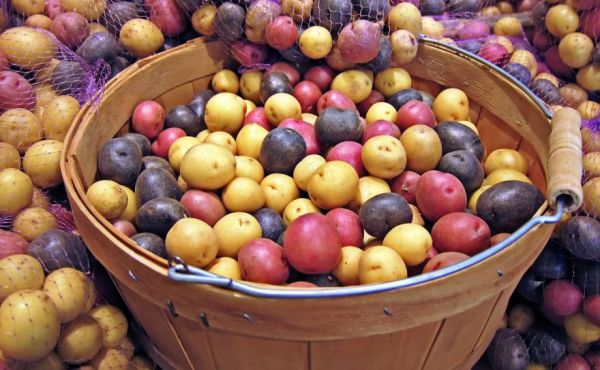
A couple of years ago, we linked to a story about how the variety of apples diminished to just a few kinds, and the efforts of one man to bring back their glorious diversity. The same fate has befallen potatoes. Thanks to market forces, particularly the demands of the French fry industry, the overwhelming majority of potatoes available in the U.S. are Russet potatoes. Contrast that with the many kinds of spuds that are still grown in South America. Potatoes were first cultivated thousands of years ago in the Andes mountains, on the border of what are now Peru and Bolivia.
Back then, the potato was synonymous with diversity. The Andeans inhabited a mountainous mosaic of microclimates in which one plot of land presented a very different set of growing conditions than its neighbor. No single variety could survive in such a heterogeneous landscape, so the Andeans diversified — to the extreme. Farming so many different types of potatoes also provided a more interesting and enjoyable diet, a tradition that is still alive today. “If you go to a typical Andean household,” explains Stef de Haan, a researcher at the International Potato Center in Lima, “they will eat what is called chajru, which means ‘mixture’ in the Quechua language. They sit around a big bowl of potatoes. And the joy of eating those, the culinary delight, is that every time you pick a potato, you pick a different one. In Quechua, especially when it comes to the taste of potatoes, they have this whole unique vocabulary — almost like somebody from France would tell you about the taste of wine.Now a few folks are trying to bring back potato variety in the U.S. One is helping chefs develop ways to harness different tater flavors, colors, and textures, while another is encouraging diversity on farms. Read about the many types of potatoes we could be eating soon at Modern Farmer.

No comments:
Post a Comment